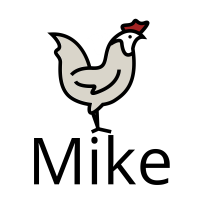Especially for those of us with no coding background, who can’t just build/edit an app.
For example, I like using Gadgetbridge to replace my fitness tracker app: https://gadgetbridge.org/
It’s not nearly as full-featured as a regular fitness app, but it literally can’t connect to the internet so there’s no way anyone can get my health info.
- HeliBoard replaces GBoard
- Firefox replaces Chrome
- Element replaces Discord (with the right server)
- Organic Maps replaces Google Maps
- Waistline replaces MyFitnessPal
- Tasks replaces Microsoft ToDo
- Aegis replaces Google/Microsoft Aurhenticator
- Obtainium replaces the App Store
Here’s a JSON export of my current Obtainium library
I was just looking into Waistline. I wonder if there’s a way to download the Open Food Facts database, keep it locally, and have the phone query that instead of the internet when scanning barcodes.
There’s a PR open for the feature, but doesn’t look like it’s actually been implemented yet.
Can anybody else vouch for unobtainium?
It has 6.4k stars on GitHub and a very active repository (also it’s “Obtainium” without the “un”)
I am not as funny as I think I am.
I checked it out, and it seems awesome. I might even be able to reset my tablet, and not even login to my Google account.
How does organic maps compare to other OSM frontends like OsmAnd?
OsmAnd has tons of features, and steeper learning curve. Personally, Organic maps is just too simplified for me.
Not OP, But for me, it’s just a little bit more intuitive and runs so smooth. I think it has the best interface for directions, viewing maps, and zooming in and out.
is there anything like obtanium on Linux (fedora) desktop? there are several apps I use that dont seem to be part of dnf or flatpak and its a pain to manually check for and install updates from github
Antennapod for podcasts.
Futo keyboard instead of gboard.
Newpipe for YouTube.
Notally for notes.
Firefox browser.
I just downloaded Futo!
How is it?
Not OP, but it’s decent.
If you’re used to swiping to type on Gboard, the predictions aren’t as accurate. 10-25% of the time, manually typing is faster than swiping because the predictions are so wrong, or because there’s no prediction at all.
It’s supposed to train locally in order to improve the predictions, but I don’t know how long it will take for it to “catch up” to the swipe-to-text experience that I’m used to.
I could not live without swiping. Used SwiftKey but then switched to Google like 2 years ago after it got too bad.
Does notally work by syncing online? I haven’t found one that allows me to share notes with family that still is more trustworthy than Google (apart from setting up my own server that I can connect to when I’m out).
Notally does not have any account or syncing capabilities.
Forest is a simple step counter that shows you the steps you did today, with a little extra info.
Doable is a tasks/reminders app. It’s not the most feature rich, and notifications are only in beta, but I love the design and it does what I need well.
Data Monitor shows you how much data you’ve used in your current plan, and you can see which apps use the most data (or wifi).
Quillpad for notes.
LibreOffice Viewer lets you open word documents and the like.
Squawker lets you open Twitter links more privately, and even follow users to see all of their posts, but requires you log in with an account.
Breezy Weather is a really nice weather app.
Love seeing Forest get the love it deserves. Beautiful UI.
-
Standardnotes for notes
-
Newpipe for Youtube
-
Organic maps for maps
-
Proton Mail, Calendar, VPN, Drive & Pass
-
Voyager for lemmy
-
Loop habit tracker for habit tracking
-
Breezy weather for weather
-
Antennapod for podcasts
-
Brave for web browsing
On a Pixel 6 running GrapheneOS
Wow I checked out Breezy and it seems it’s exactly what I have been looking for in a weather app. I’ve been using Clima for some time now but it was never really a good fit for me. Thanks for the recommendation.
You’re welcome! Glad I could help.
-
Here is my personal setup on a phone running GrapheneOS:
- Weather: Breezy Weather
- Maps: Organic Maps
- File sharing: LocalSend
- Lemmy: Voyager
- Gallery: Aves Libre
- RSS reader: Feeder
- Calendar: Fossify Calendar
- Drive: Filen
- Document reader: LibreOffice Viewer and Librera FD
- VPN: Mullvad
FlorisBoard Beta for keyboard
Grayjay for Youtube/Peertube/Twitch, etc.
K-9 Mail for mail
QUIK SMS for SMS
Mull for browser
Self hosted ente photos for cloud image/video storage
InnerTune for downloading/listening music
Taler Wallet for payments in the future
Keyguard for bitwarden password manager
Translate You for translator
TranslateYou is great! I use it for quick translations. For longer translations and conversations, there’s the less feature-rich, but incredibly powerful on-device translator, RTranslator. It is truly and incredibly impressive.
Also, there is a whole suite of “You” apps. I’ve used the recorder and the calculator and liked them a lot.
- Tachiyomi (manga / webtoon reader)
- Molly (Signal fork)
- Mull browser
- Cromite (to replace chrome based browsers)
- KeePassDX
- Aegis Authenticator
- K-9 Mail
- Newpipe
- Photok (image / photo safe on your device)
- QUIK SMS
- VLC
- Unit Converter
- Currencies
- RethinkDNS
- AuroraStore
- F-Droid
- Binary Eye (barcode scanner)
- FlorisBoard / HeliBoard
- Obtainium
- KDE Connect
- LocalSend
- OSMand
- NeoBackup
I use the duck-duck-go browser on my phone. It has kinda private mode enabled all the time.
Some wild websites complain about my adblocker then, which does not exist :)
Warpinator, use it to transfer files wirelessly between my PC and android phone.
What would be the difference between Warpinator and Local Send, I wonder.
They function the same. After using both, I get faster transfer speed and less errors on warpinator.








